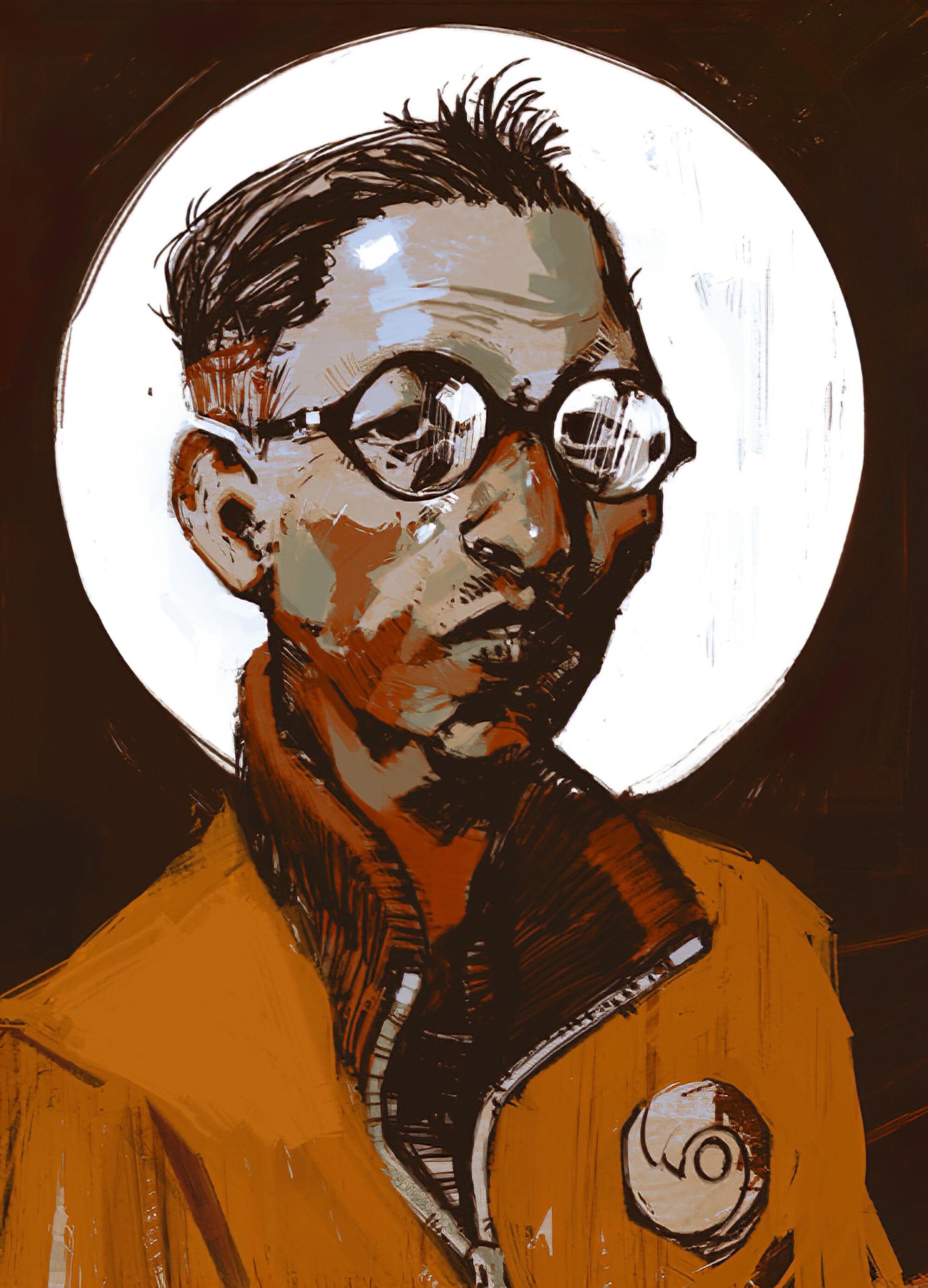I have heard several different things, but how I currently understand it is that Communism is a post-socialism state in which goods are produced with such efficiency and surplus that money becomes worthless and class, labor, and the state are phased out. Is this wrong? Is there any difference at all? I am pretty new to leftism. TIA
[aimixin]
Marxists argue that we should treat socioeconomic development as a field of scientific study, so we can develop objective theories to explain societal development since the dawn of human civilization to today, to understand how it developed, how it is currently developing, and to try and predict what it is developing into.
The purpose of any science is not to simply understand, but to control. We learn about electricity not to just understand the cause of lightning, but to control and harness the power of electricity to build new technologies and such to benefit human civilization.
Hence, the purpose of developing these theories is to form our politics around them so that we can facilitate socioeconomic development, to continually push humanity forwards into the future.
Most political parties with "Communist" in the name are Marxist-Leninist parties, and Marxist-Leninist distinguish between two ideas, "socialism" and "communism."
Communism is not a system anyone has ever implemented. The USSR was the Union of Soviet Socialist Republics. From Mao until today, the CPC has described China's system as a socialist state, not a "communist" one.
If Communist Parties in practice never establish communism, why do they call themselves "Communist"?
Because "communist" refers to extrapolating Marxian theories on human societal development as far as they can go, i.e. it is the theoretically most developed society possible. It is basically like a post-scarcity, Star Trek esque futuristic society that has such an abundance of wealth people don't have to work as a means of survival anymore but only work as a means to fulfill themselves as human beings.
It is best to think of "communism" thus as more akin to "futurism." A futurist is someone with an extremely positive, forwards-looking vision into the future, and wants to do things in the here-and-now to help push us in that direction. It offers an optimistic vision to encourage development in that direction.
Communist Parties are Communist because they are forwards-looking, they always have a more positive vision of the future they want to move towards, and never want things to "remain the same." It is part of China's constitution that the Party has to always develop the forces of production.
Meanwhile, "socialism" is what Marxist-Leninists actually advocate to implement in the here-and-now. You can't "try" communism, as if you just implement an arbitrary set of policies and you have "communism." It's something you build towards over the combined work of many many generations.
While Marxist-Leninists make the distinction between "socialism" and "communism," Chinese Marxists additionally add the distinction between the "primary stage of socialism" and "developed socialism," arguing that China has not even finished constructing socialism and is still in an underdeveloped, primary stage. They also tend to be critical of Soviet Marxists who had argued socialist construction was completed and they were on their way towards communism, viewing this as unrealistic and not a correct analysis of their current conditions, which led them to implementing bad policies.
Given that we will likely not see "communism" any time in the near future, probably not even in a hundred years, it is best to think of communism more as a futuristic philosophy, looking towards the future, than a specific system you implement. It's the reason why the USSR and China launched massive industrialization campaigns and became manufacturing superpowers. No, they didn't achieve "communism," but that's not the point, they point is they achieved something, they propelled their societies into the future.
China is only "Communist" in the sense that it has one of these future-oriented parties at the helm, constantly trying to drive China towards the future. But its actual economic system is not communism, but it is a rudimentary form of socialism, in the primary stage of socialism.
We must recognize that our labors today and the unceasing work of so many generations in the future are paired together, all moving towards the ultimate goal of achieving communism. If we throw away our Communist Party’s lofty ideals, we will lose our direction and become coldly utilitarian. At the same time, we must recognize that the realization of communism is a very long historical process. We must ground ourselves in the struggles of the present moment and keep our work down to earth.
—Xi Jinping, Speech at the Central Committee for the 18th National Congress of the Communist Party of China.
To care about the immediate interests only while forgetting the lofty ideal will result in the loss of direction of progress. But to talk big about the lofty ideal without doing any practical work will get one divorced from reality.
—Jiang Zemin, Speech at the meeting celebrating the 80th anniversary of the founding of the Communist Party of China
While Marxist-Leninists make the distinction between "socialism" and "communism," Chinese Marxists additionally add the distinction between the "primary stage of socialism" and "developed socialism,"
Doesn't Marx himself treats it as "stages"? Or am I misunderstanding what you mean?
IIRC, in Critique of the Gotha Programme, he explains how early communism, in the condition of developing from capitalism, will first maintain the laws that regulate exchange of commodities (in whatever form that may take), gradually morphing into something else as the state develops the means of production and productive forces.
I'll check the exact quote and post here as an answer to OP's question later
Inb4 Socialism is when the government does things and communism is when it does MORE things.
Socialism is when the government does stuff. And when it does a whole lotta stuff, it’s communism
Socialism is when you are Cabin America and Communism is when you are Thandos.
The history of the two terms is different and socialists/communists have struggled to differentiate and compare the two because of varying disagreements. I generally use it in the modern marxist-leninist way that defines communism as a mode of production and socialism as the political movement towards communism, because I find that has utility and differentiated SocDems from communists, but people are still going to disagree with that.
Socialism
(1) The first stage of the communist formation. The economic basis of socialism is social ownership of the means of production; its political basis is the power of the toiling masses under the leadership of the working class, headed by the Marxist-Leninist party. Socialism is a social structure that precludes the exploitation of man by man and develops in conformity with a plan, with the objectives of improving the well-being of the people and comprehensively developing every member of society.
(2) Scientific socialism, the doctrine that reveals the historical necessity for the establishment of socialism and shows the way for its gradual transformation into communism; part of the Marxist-Leninist theory.
Communism
(1) the socioeconomic formation replacing capitalism and founded on public ownership of the means of production;
(2) in the narrower sense, a stage or phase in the development of this postcapitalist formation that is more advanced than socialism; “a classless social system with one form of public ownership of the means of production and full social equality of members; under it all-around development of people will be accompanied by the growth of the productive forces through continuous progress in science and technology; all the springs of cooperative wealth will flow more abundantly and the great principle ’From each according to his ability, to each according to his needs’ will be implemented. Communism is a highly organized society of free, socially conscious working people in which public self-government will be established, a society in which labor for the good of society will become the prime vital requirement of everyone, a necessity recognized by one and all, and in which the ability of each person will be employed to the greatest benefit of the people” (Programma KPSS, 1972, p. 62).
Source: The Great Soviet Encyclopedia
Socialism - Purely economical, refers to labour owning the means of production (industry), rather than private interests (shareholders). Ownership can mean anything from simple co-ops, to unions, to a democratic state.
Communism - Society in which state, currency, and economic class do not exist. Socially useful labour is performed for its own sake, and material goods and services are used as needed. Considered a step beyond socialism insofar as industry no longer has recognized owners, beyond society as a whole.
It literally depends.
At the time when Marx came out, communism was basically treated like an arcane word for socialism. They were used interchangeably, up until Lenin tried to make a distinction and call his party the one true communists. In his definition, socialism was the stage post-capitalism and pre-communism, and this idea is typically carried on in M-L ideologies and ignored by others.
Then there was even more definition swapping by regions, because one sounded better or the other sounded too similar to another local movement and was a bad association.
Compare to now, where I'd say communism is typically interpreted as the movement which brings around a communist society, that is, a classless, stateless, moneyless socialist society. Socialism is interpreted as a society where the workers [own|control] the means of production. Or, one where property is held in common and private property (note: not personal property) is abolished.
The secret is, the terms are meaningless out of context. Even back in 1924 some guy compiled over 40 distinct definitions of 'socialism', and then the Cold War and USA happened.
Socialism is what you say when you don’t want to scare libs too much and communism is what you say when you realise the libs need to be scared more
These are vague categories with no concrete delineation. Socialism policies tends to be ones that give money or resources directly to people. Communist policies generally have radical equality elements, such as complete abolishment of private property or money.
socialism is when the government does stuff and IF it does alot of stuff its communism
One categorical distinction you might make is that socialism implies organizations that agitate within capitalism and struggle against it. Communism implies a stable culture that defends equality and production-for-use.
I base this sort of definition from exanples of socialism and communism that do not overlap: reformist socialism (that advocates for a transformation of class society without a revolution to break the economic power behind it), and primitive communism.
"Communist society passes through two phases of development: the lower phase known as Socialism, and the higher phase known as Communism. In the first stage, communist society cannot as yet be free from the traditions and traces of capitalism, from whose womb it has emerged. Only the further development of socialism on the basis which it has itself created can lead to the second and higher phase of communist society. Consequently socialism and communism are two stages of maturity of the new communist form of society."
https://www.marxists.org/subject/economy/authors/pe/pe-ch40.htm
My simple explanation though would be that under socialism the motto would be "from each according to their ability, to each according to their work" - while under communism the motto would be "from each according to their ability, to each according to their need"









